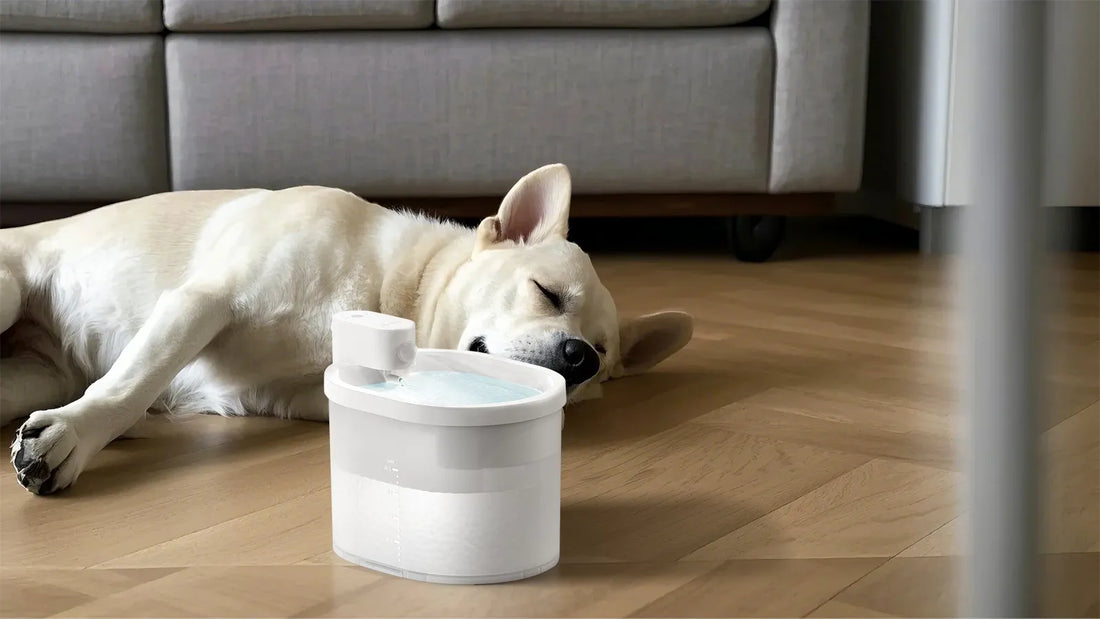Does your dog seem to have an endless supply of energy, always ready to play at any moment? You're not alone. Many dog owners find themselves wondering why their furry friend wants to play all the time and how to manage this behavior. Understanding the reasons behind your dog's constant need for play is crucial to ensuring their well-being and maintaining a harmonious household.
Why Does My Dog Want to Play All the Time?
Dogs are naturally energetic creatures, and their desire to play is rooted in their instincts and biology. Here are some key reasons why your dog might always be ready for a game:
- Breed Characteristics: Certain breeds are known for their high energy levels and need for regular physical activity. If your dog belongs to one of these breeds, their constant desire to play is likely a reflection of their genetic makeup.
- Age: Puppies and young dogs have more energy than older dogs. Their playful behavior is a way to explore the world, learn new skills, and burn off excess energy.
- Mental Stimulation: Play is not just about physical exercise; it also provides mental stimulation. Dogs need to engage their minds to stay happy and healthy, and play is an excellent way to achieve this.
- Social Interaction: Dogs are social animals, and play is a way for them to bond with their human family members and other dogs. It's a form of communication and a way to strengthen relationships.
How to Manage Your Dog's Playfulness
While it's great that your dog is playful, it's important to manage their energy levels to prevent behavioral issues and ensure they get the right balance of exercise and rest. Here are some tips to help you manage your dog's constant desire to play:
- Regular Exercise: Ensure your dog gets plenty of physical activity every day. This could include walks, runs, or play sessions in the yard. The amount of exercise needed will vary depending on your dog's breed, age, and health.
- Mental Stimulation: Incorporate activities that challenge your dog's mind, such as puzzle toys, training sessions, or interactive games. This will help keep them engaged and reduce their need for constant physical play.
- Establish a Routine: Dogs thrive on routine, so establish a consistent schedule for playtime, meals, and rest. This will help your dog understand when it's time to play and when it's time to relax.
- Teach Calmness: Train your dog to settle down and relax on command. This can be done through positive reinforcement training, where you reward your dog for calm behavior. Over time, your dog will learn to switch off their playful energy when needed.
- Provide Appropriate Toys: Make sure your dog has access to a variety of toys that cater to their play style. This will keep them entertained and prevent them from becoming bored or destructive.
Signs Your Dog May Be Overdoing It
While play is essential for your dog's well-being, it's important to recognize when they might be overdoing it. Here are some signs that your dog may need to take a break:
- Excessive Panting: If your dog is panting heavily and seems unable to catch their breath, it's time to stop playing and let them rest.
- Limping or Reluctance to Move: If your dog starts limping or seems reluctant to move, they may have overexerted themselves or sustained an injury.
- Restlessness: While restlessness can be a sign of boredom, it can also indicate that your dog is overstimulated and needs some downtime.
- Aggressive Behavior: If your dog becomes overly excited or aggressive during play, it's a sign that they need to calm down and take a break.
When to Seek Professional Help
If you've tried various strategies to manage your dog's playfulness and they still seem to have an excessive amount of energy, it may be time to seek professional help. A veterinarian or a certified dog behaviorist can assess your dog's behavior and provide tailored advice. They can also rule out any underlying medical conditions that might be contributing to your dog's constant desire to play.
Remember, every dog is unique, and what works for one dog may not work for another. It's important to be patient and consistent in your efforts to manage your dog's energy levels. With the right approach, you can ensure that your dog remains happy, healthy, and well-balanced.
Understanding why your dog wants to play all the time is the first step in managing their energy levels effectively. By providing regular exercise, mental stimulation, and a consistent routine, you can help your dog channel their playful energy in a positive way. Keep an eye out for signs of overexertion and seek professional help if needed. With the right care and attention, you can enjoy a harmonious relationship with your energetic furry friend.














